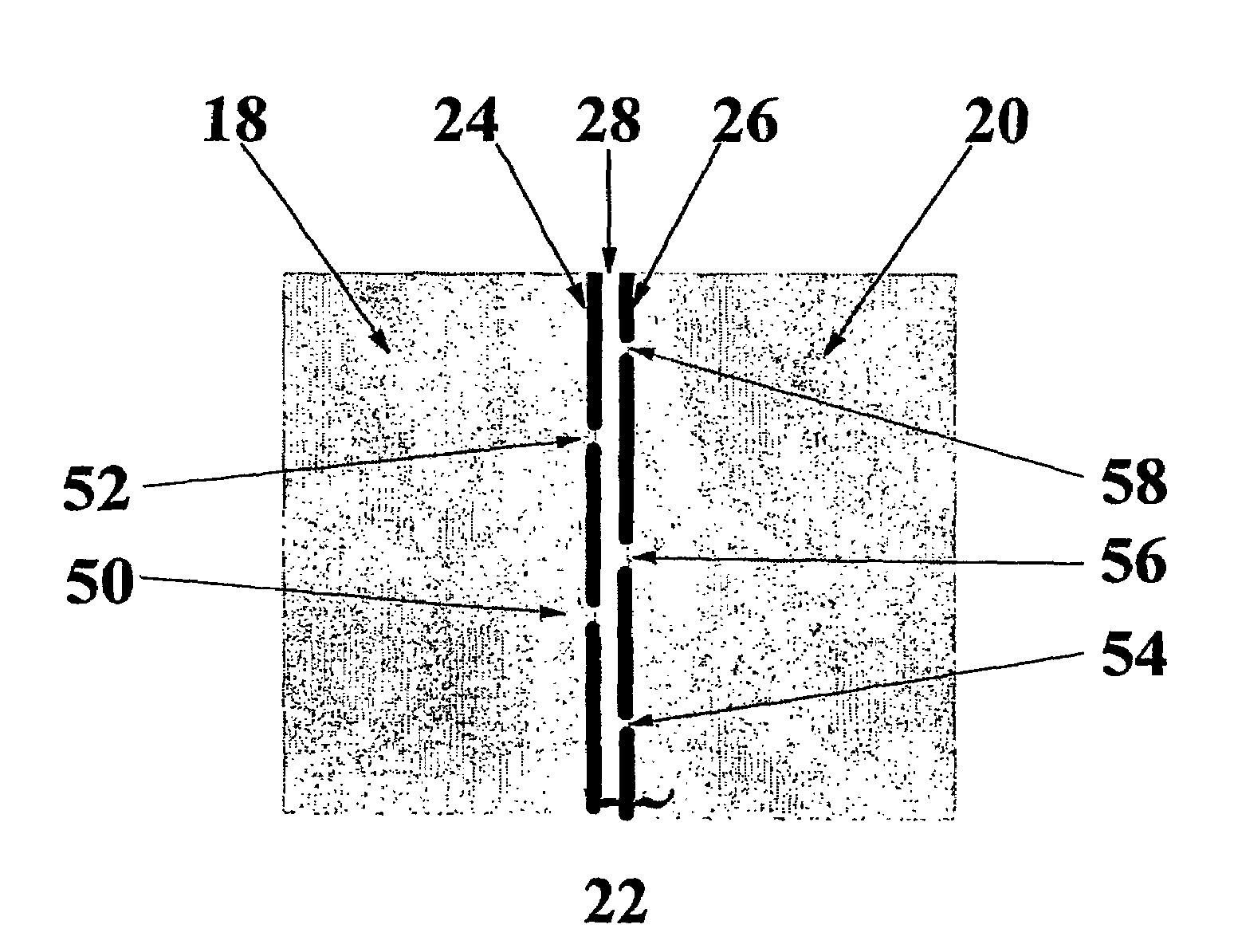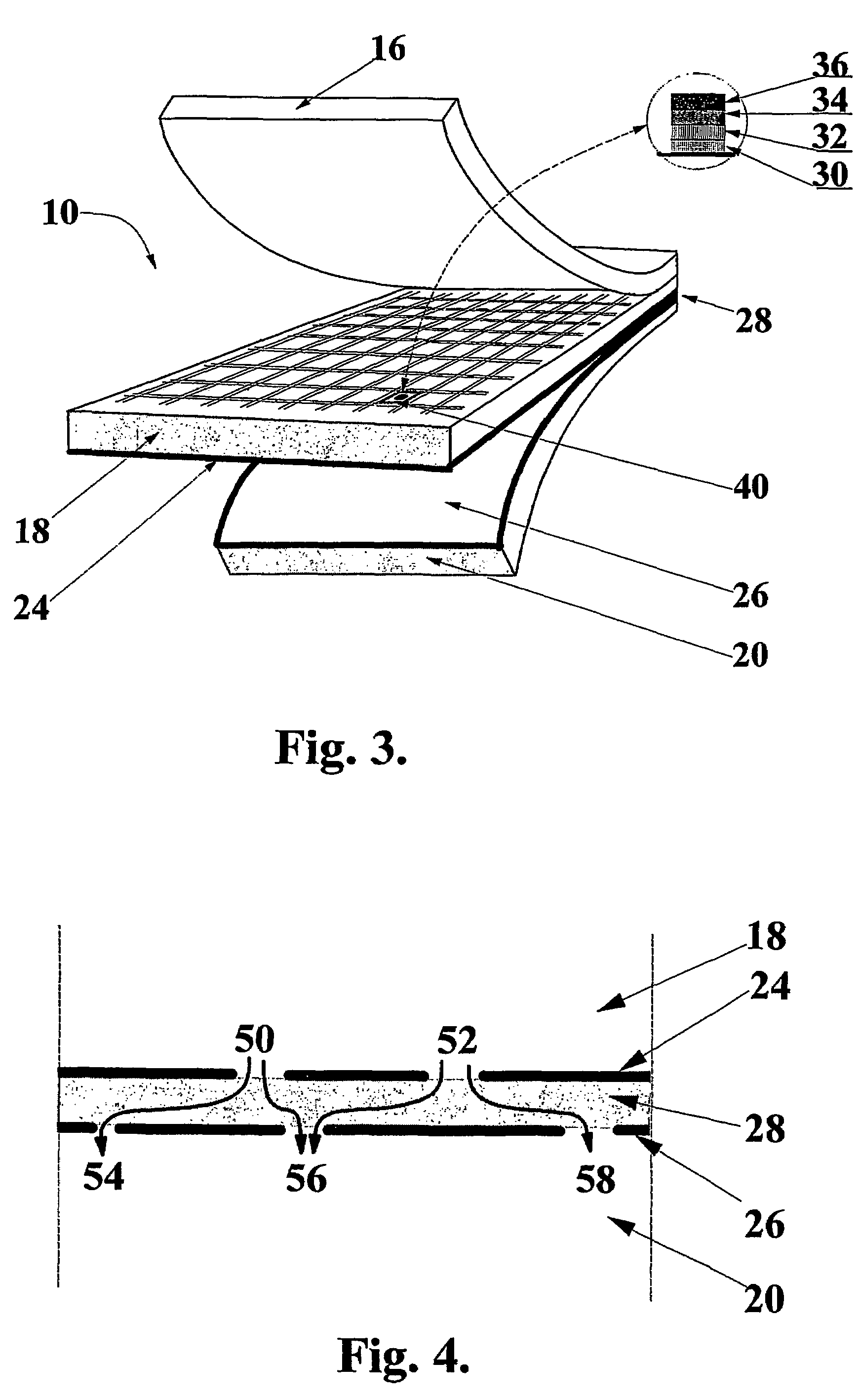Transparent support for organic light emitting device
- Summary
- Abstract
- Description
- Claims
- Application Information
AI Technical Summary
Benefits of technology
Problems solved by technology
Method used
Image
Examples
examples
[0129]Polymer films of polyethyleneterephthalate and polypropylene were “cleaned” of large dust particles by blowing compressed nitrogen over their surfaces. A controlled number of sodium chloride micro-crystals were deposited onto the surface of the polymer films using an aerosol of salt solution in water, created ultrasonically. The deliberately contaminated films were then coated with 36 or 70 nm of silica using the PECVD method, from HMDSO / O2 / Ar precursor mixture. The films were then washed with flowing water (DI / RO, 18 MΩ), which dissolved the micro-crystals, and were then dried with dry nitrogen. Since the polymer films were not silica coated in places previously occupied by the crystals, the above procedure provided numerous well-characterized defects in the coating. The sodium chloride crystals deposited onto the polymer films, and corresponding defects in the coating, were clearly visualized, the latter using the defect detection technique described above. In order to contr...
PUM
 Login to View More
Login to View More Abstract
Description
Claims
Application Information
 Login to View More
Login to View More - R&D
- Intellectual Property
- Life Sciences
- Materials
- Tech Scout
- Unparalleled Data Quality
- Higher Quality Content
- 60% Fewer Hallucinations
Browse by: Latest US Patents, China's latest patents, Technical Efficacy Thesaurus, Application Domain, Technology Topic, Popular Technical Reports.
© 2025 PatSnap. All rights reserved.Legal|Privacy policy|Modern Slavery Act Transparency Statement|Sitemap|About US| Contact US: help@patsnap.com



